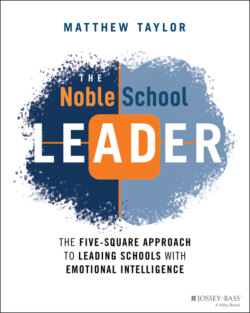Читать книгу The Noble School Leader - Matthew Taylor - Страница 19
The Doer
ОглавлениеDoers believe that their job is to the be the #1 performer (Charan 2011).6 Leaders who demonstrate this mindset are usually promoted to their new roles in part because they were great doers in their previous roles, so the mindset and behaviors are deeply engrained. Often the doer hasn't been taught that, in their new role, they are supposed do less and instead direct other doers. Even when they have been taught, they struggle to let go of what served them and made them feel competent in the past. (In this way a mindset can shift from being a strength to an obstacle as one climbs to new levels of leadership.)
Doers do not delegate well, if at all. They tend to take on the work of others at the expense of doing their own work (which they are likely the only person in the organization qualified or tasked to do). They send the inadvertent message to their teams that they do not trust them to do their own work. Their teams become increasingly dependent on the doer to solve their problems for them. Doer leaders take on more and more while their teams do less. They become overwhelmed, drop balls more and more frequently, and communicate reactively. Doers lose credibility and sink into chronic stress, while their teams become less empowered and less effective over time.
